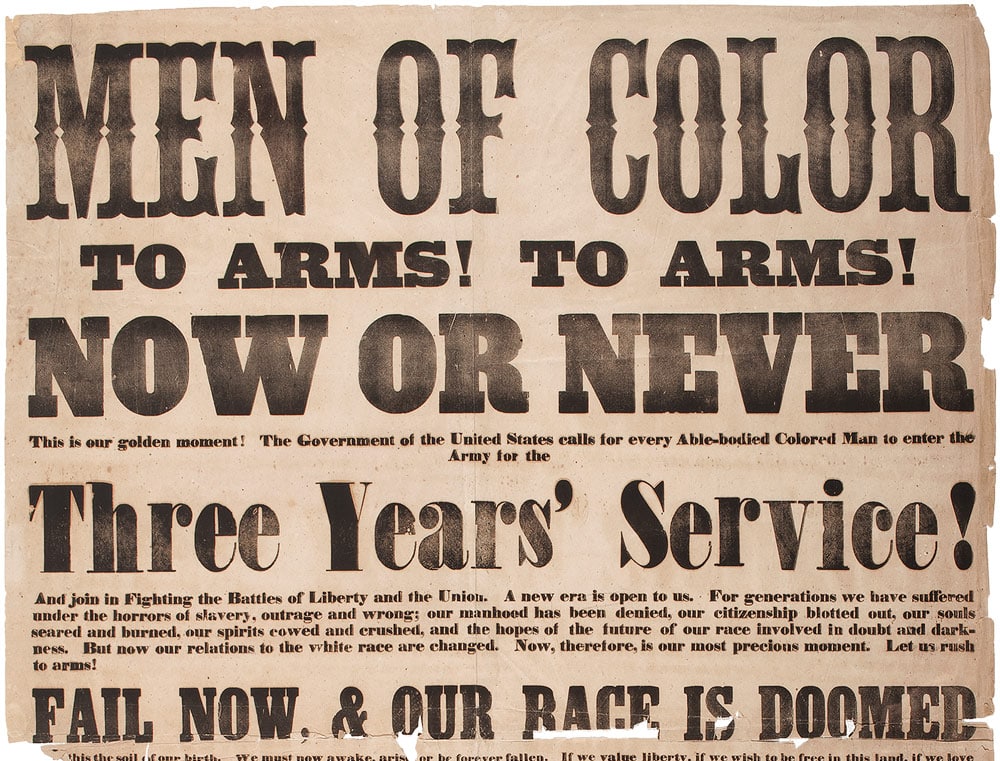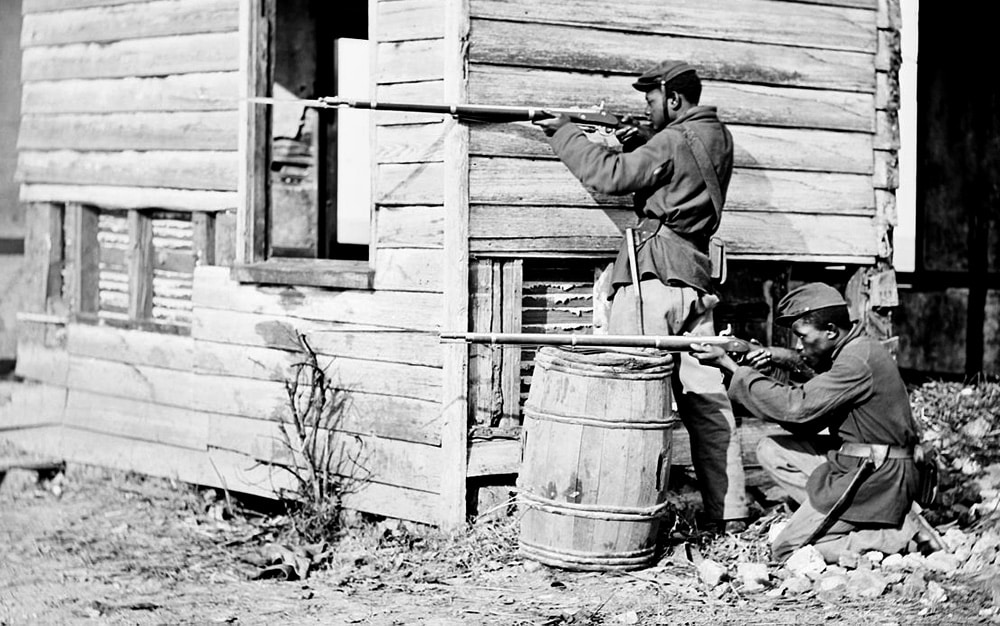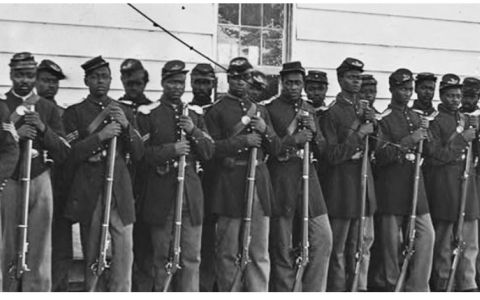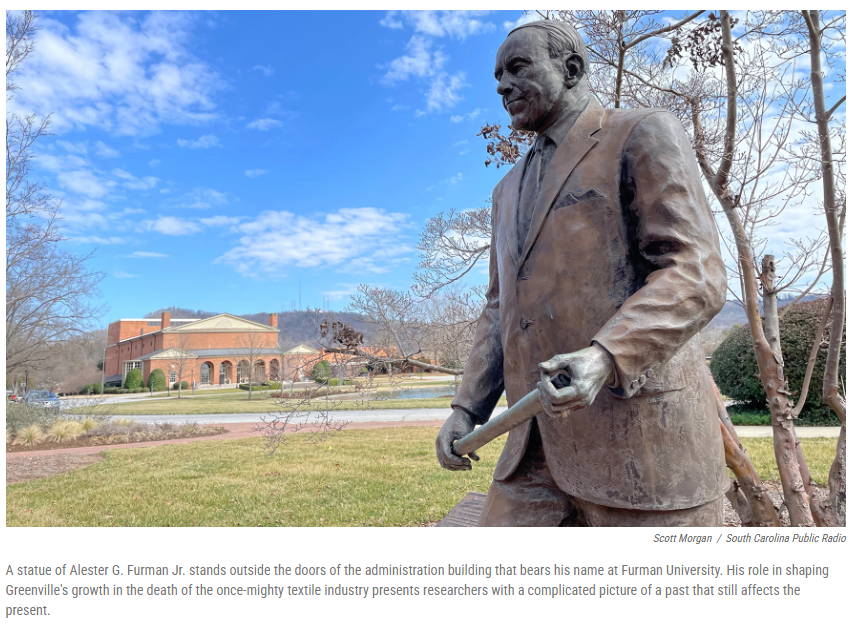A new project is working to put records of the United States Colored Troops—regiments of African-American soldiers that included large numbers of men who had been slaves at the start of the Civil War—online.
Just a few weeks prior to the Battle of Gettysburg, the Union Army officially created the United States Colored Troops (USCT). However, details of these estimated 200,000 men who fought in the conflict are not easily accessible. While the army kept records of their backgrounds and where they fought as well as their fates and fortunes, they reside, in paper format, in the National Archives Building in Washington, DC.

To bring the USCT, composed of regiments that formed stretching back to 1862, closer to both scholars and descendants, a team of researchers has launched a project that is working to put these records online and in an accessible system.
“An estimated 200,000 black men signed up to fight in the Civil War, coming from all walks of life.”
The effort, which includes historians, social scientists, and the African American Civil War Museum in Washington, will produce an electronic archive chronicling an overlooked force in the shaping of American history—one that will document their lives before and after the war, shedding new light on life in the United States in the late 19th and early 20th centuries.
The National Archives is in the process of posting facsimiles of soldiers’ individual records online, but these discrete documents are not searchable, making broad historic analyses a challenge.
However, the research team, which New York University doctoral student John Clegg leads, is taking advantage of these newly available facsimiles and recruiting volunteers to convert static records into an electronic, searchable database—they are transcribing the contents of thousands of personnel and pension records from the Civil War, which also include marriages, children, and residencies, among other data, that are gradually forming the African American Civil War Soldiers database.
“The records of the Union Army are the most comprehensive and detailed source on ordinary African Americans living in the late 19th century,” explains Clegg. “An estimated 200,000 black men signed up to fight in the Civil War, coming from all walks of life. As a share of the eligible male population, they made up 78 percent of the free black population of the North and 14 percent of the enslaved population of the South.
“Notably, 72 percent of all African American soldiers were from the South; we thus estimate that the Union Army records contain detailed information on 144,000 men who grew up under the weight of slavery.”

Clegg and his colleagues, who include University of Georgia professor Scott Nesbit, University of Chicago professor Michael Weaver, and City University of New York doctoral student Danny Colligan, add that the database will enhance our understanding of not only military history, but also of migration patterns, slavery, and Reconstruction.
Because existing records contain not only detailed information on the soldiers’ military careers, including rates of pay, but also evidence of the post-war lives of veterans who applied for pensions, historians will be able to track the life-histories of large numbers of African Americans—and detail discrepancies in compensation these soldiers faced relative to their white counterparts—as well as illuminate other elements of this period that these veterans experienced.
Air blast kill crew of Confederate submarine
The research team adds that the database will also give students and teachers of history the opportunity to explore primary sources while contributing to their preservation and study, as well as allow genealogists to easily link descendants of the soldiers to enslaved ancestors.
The team will present the completed database on the website of the African American Civil War Museum.
Source: NYU



